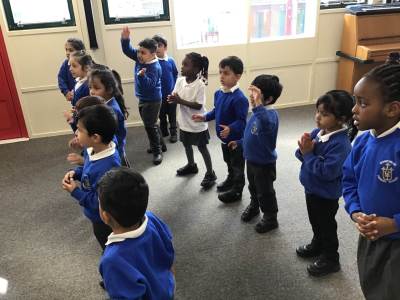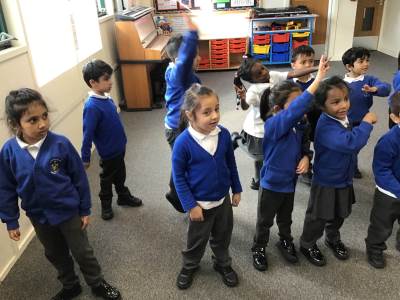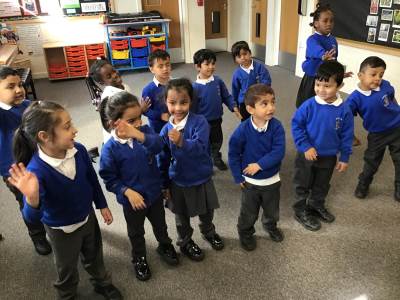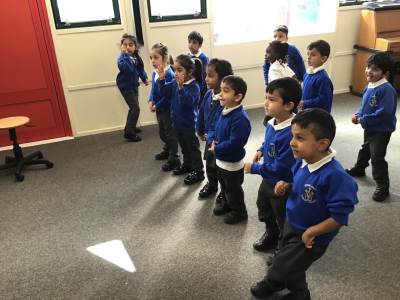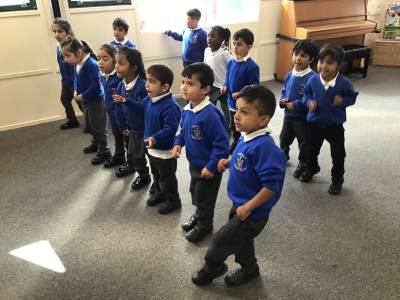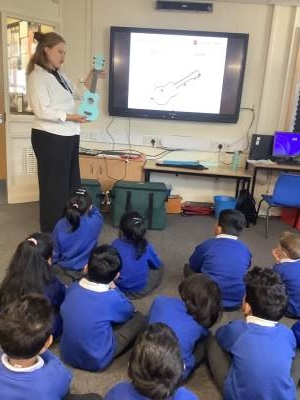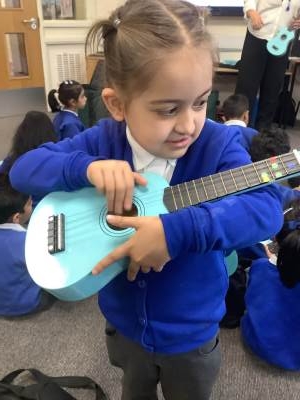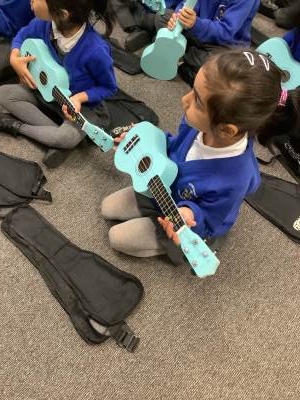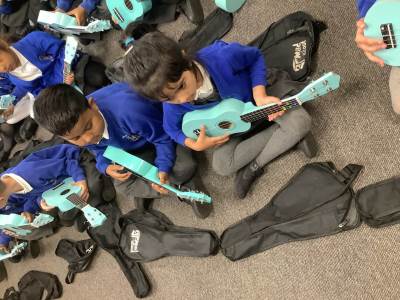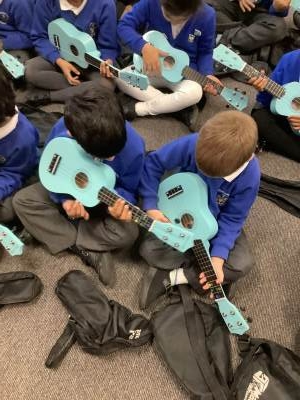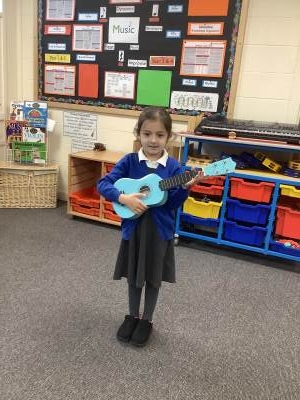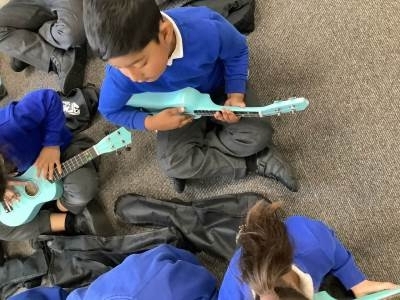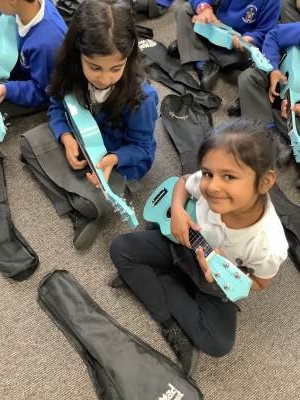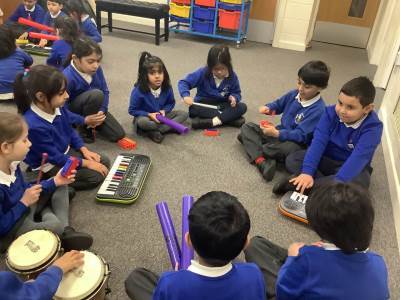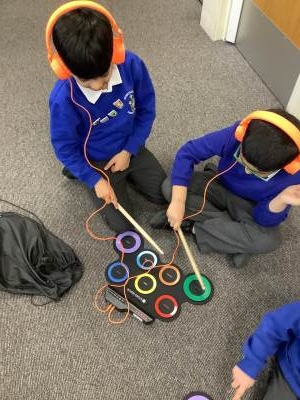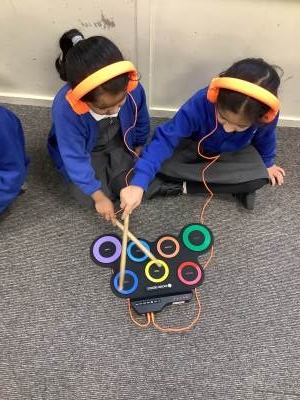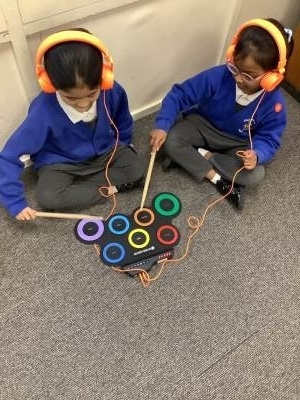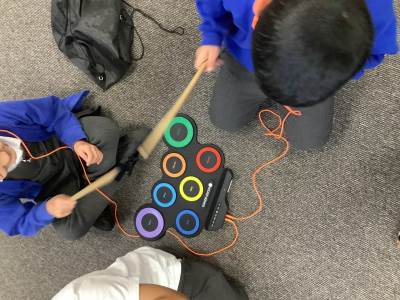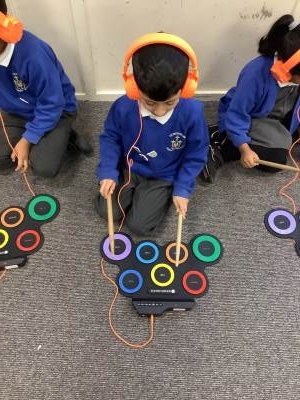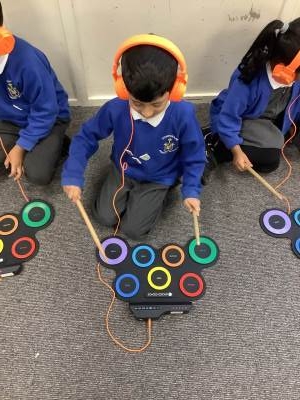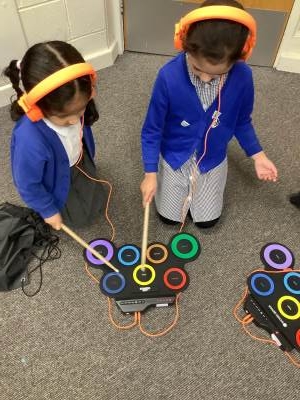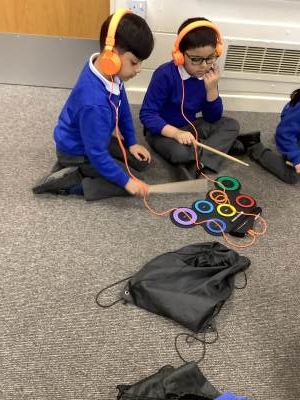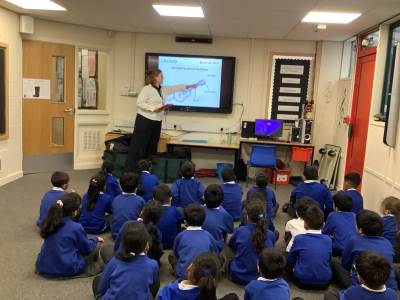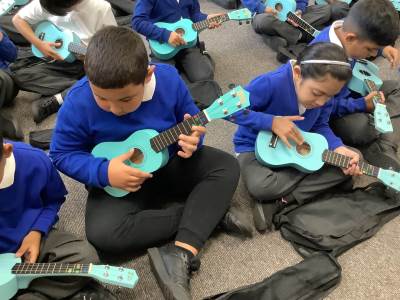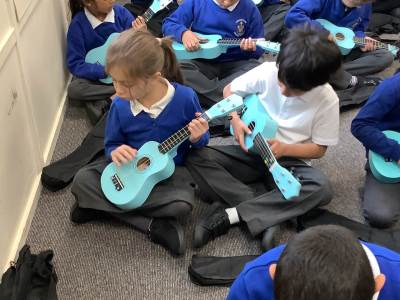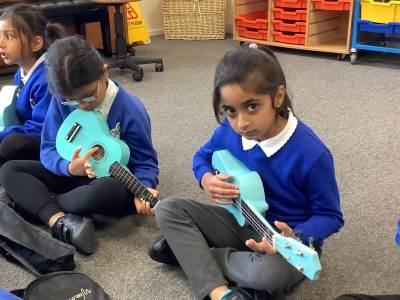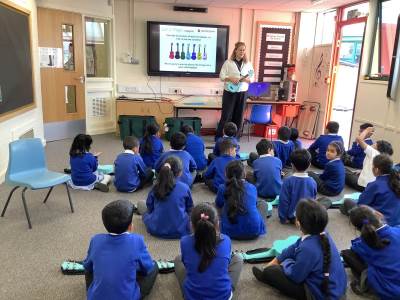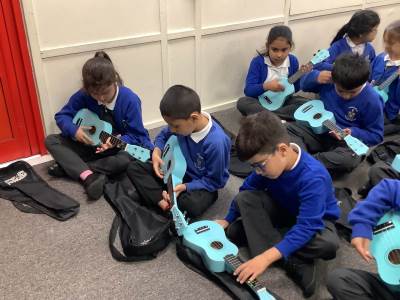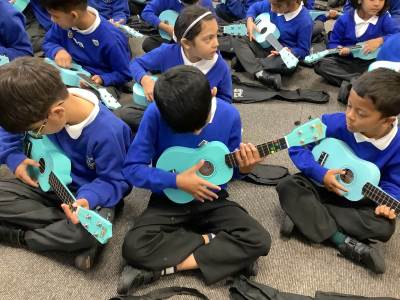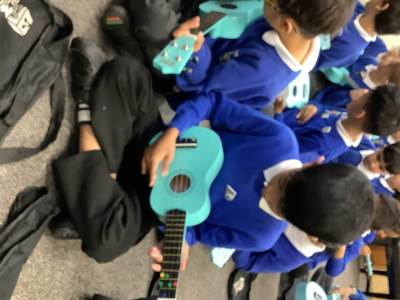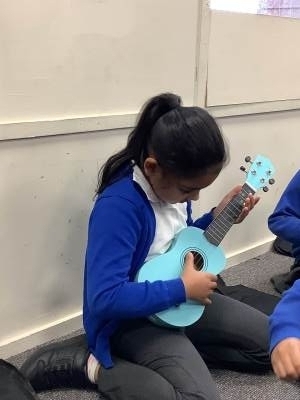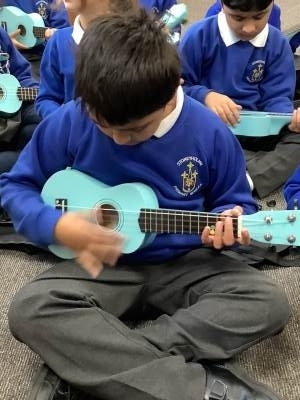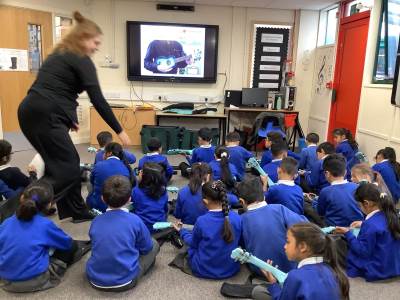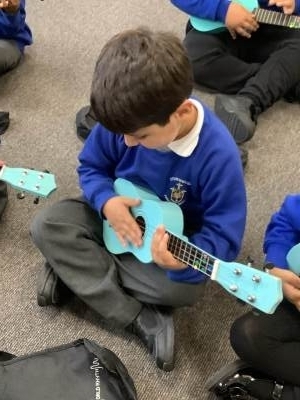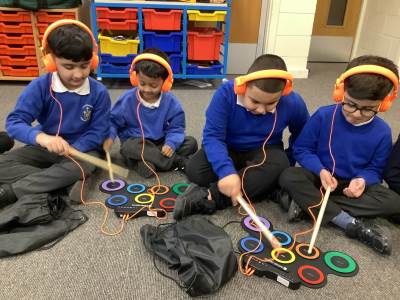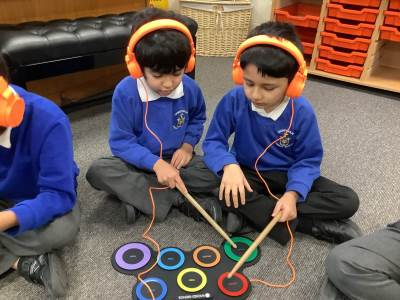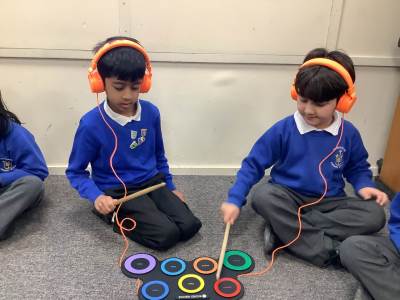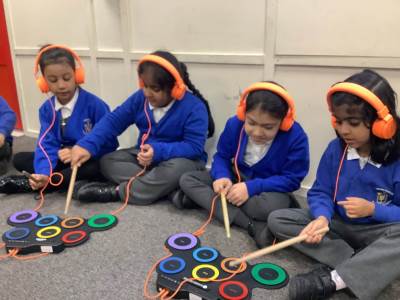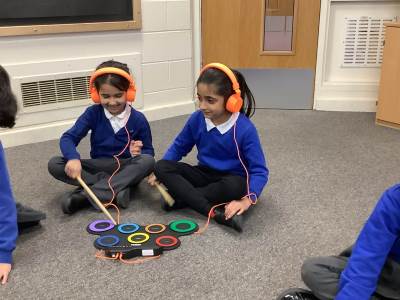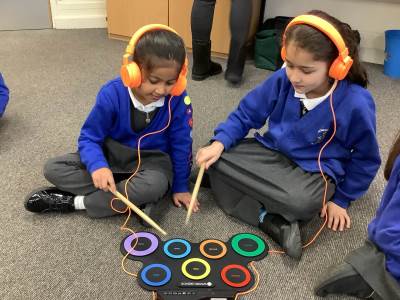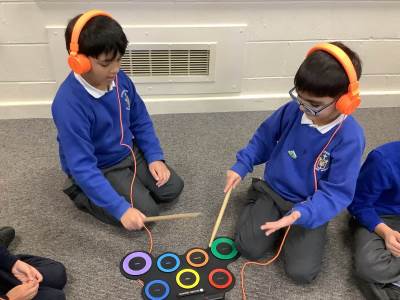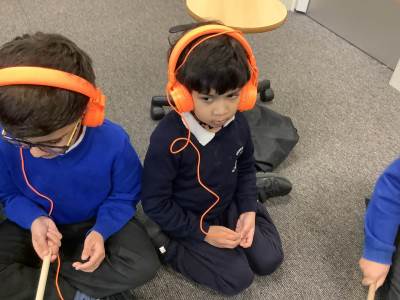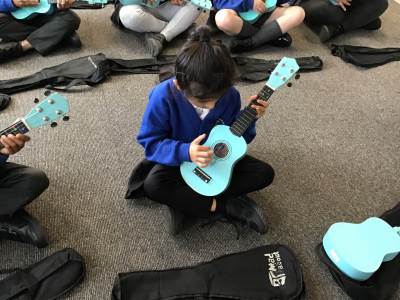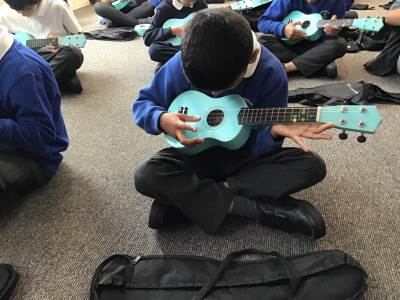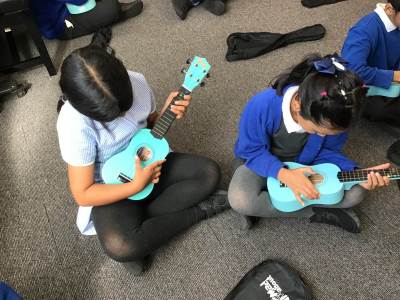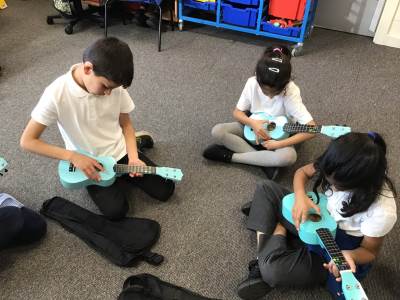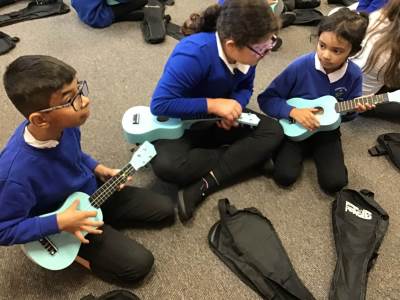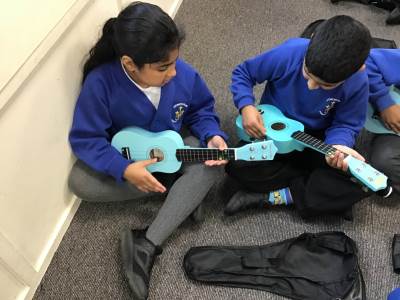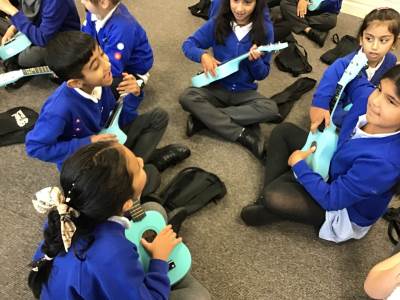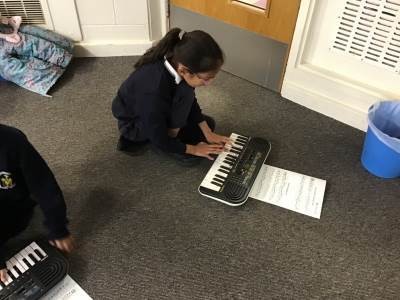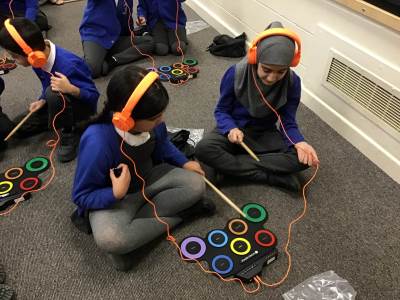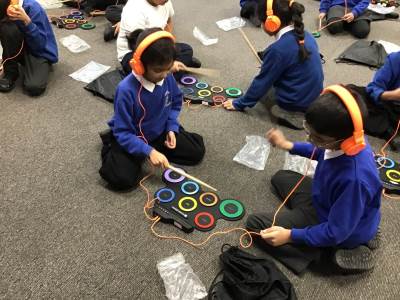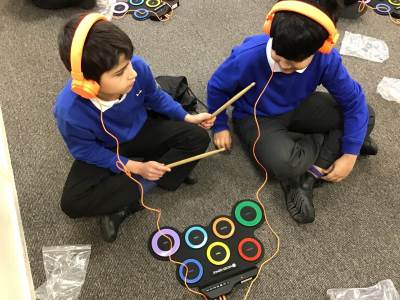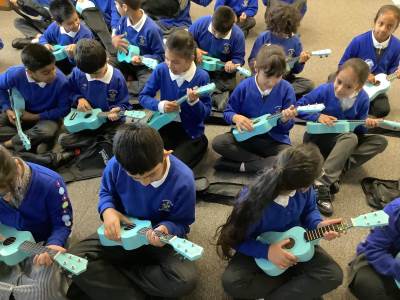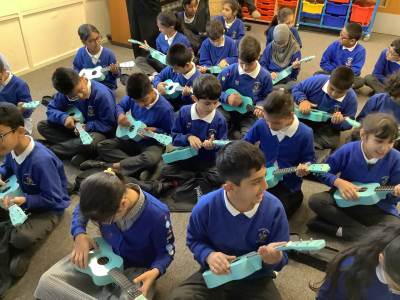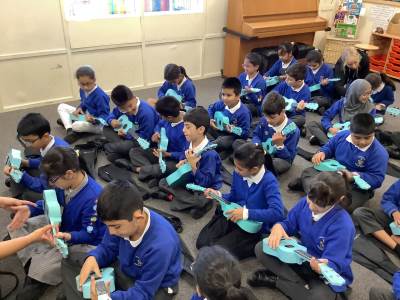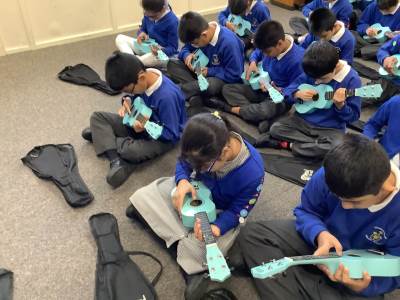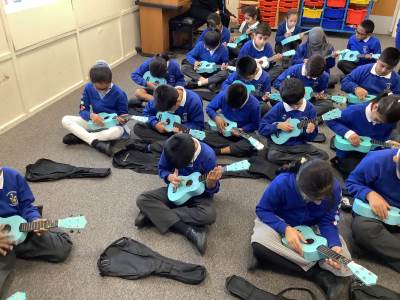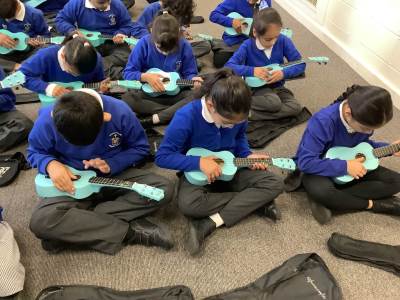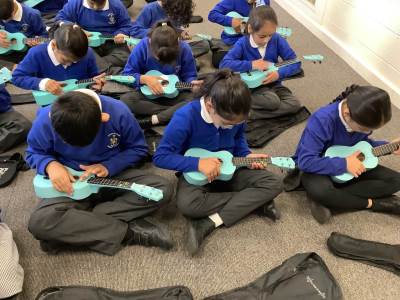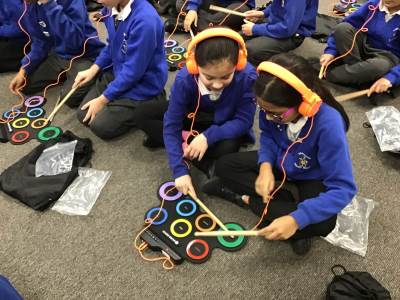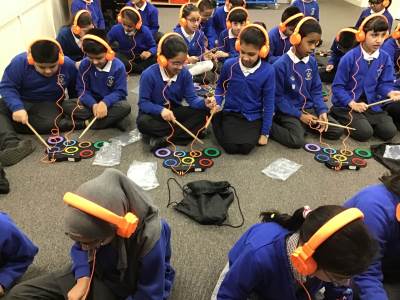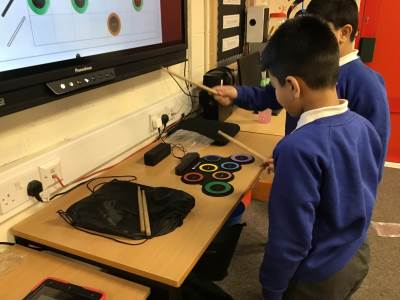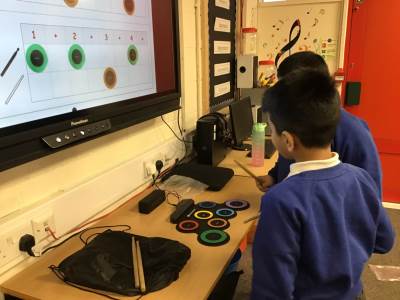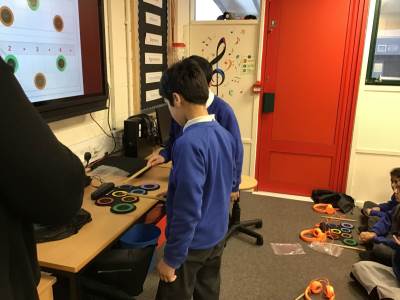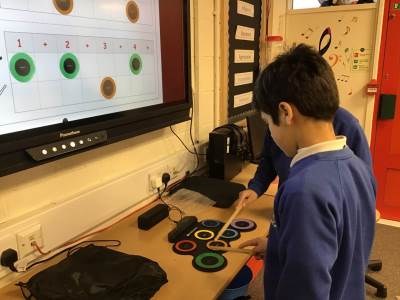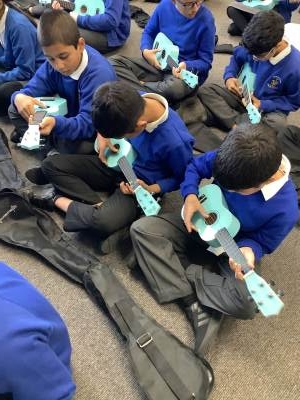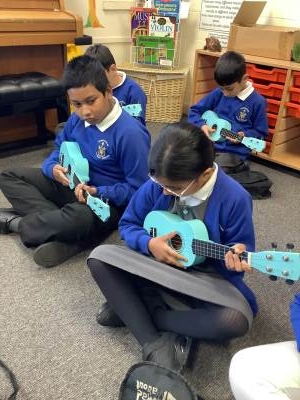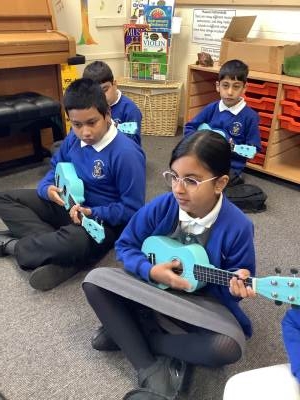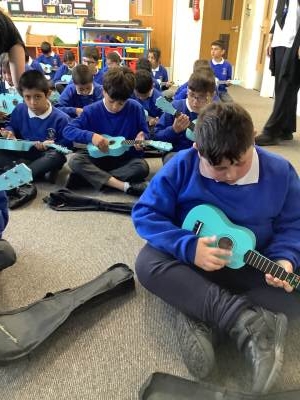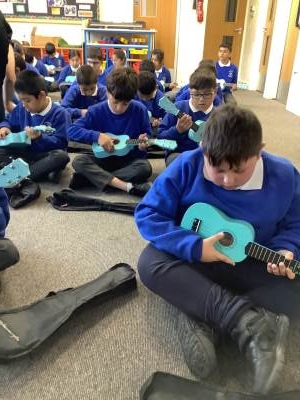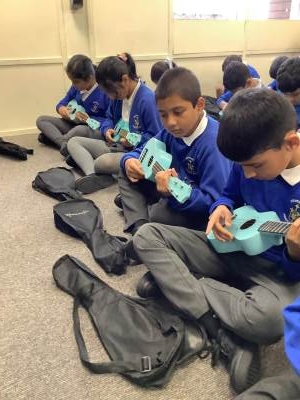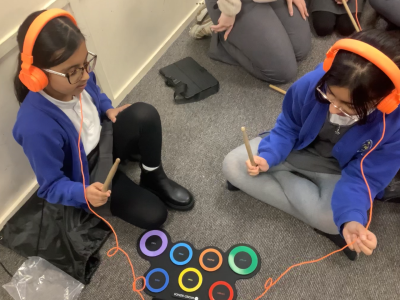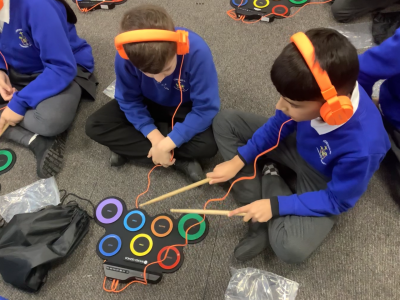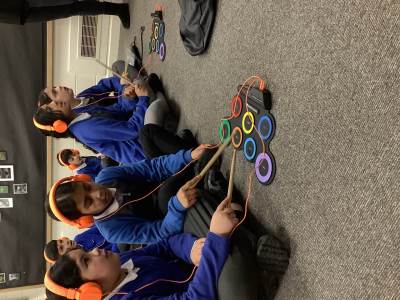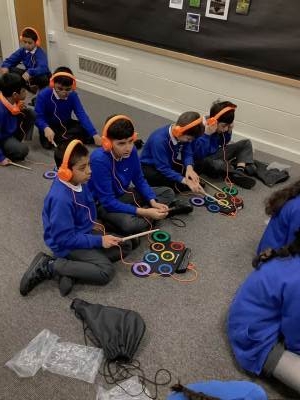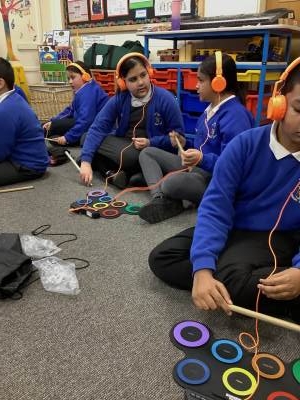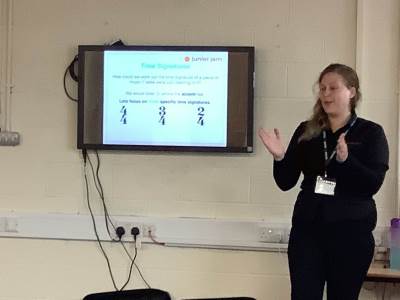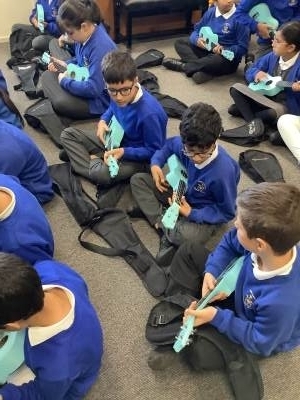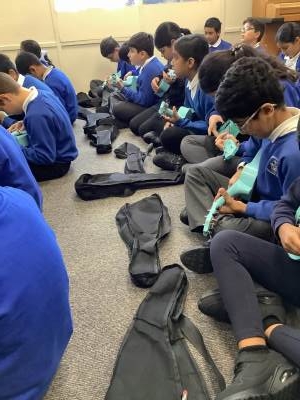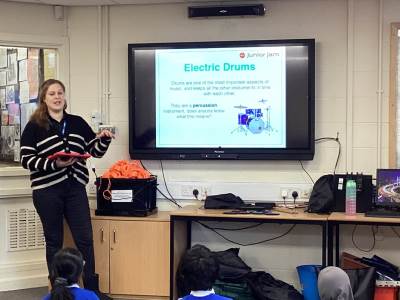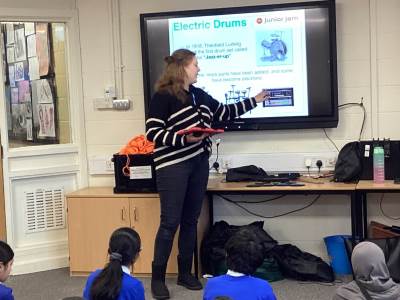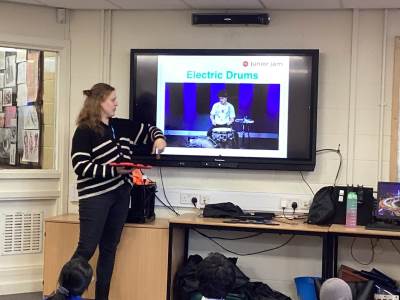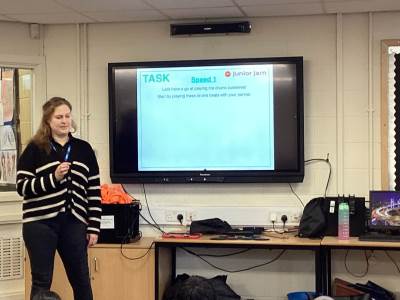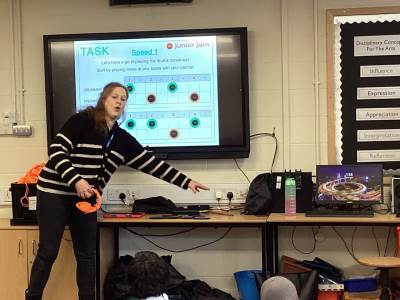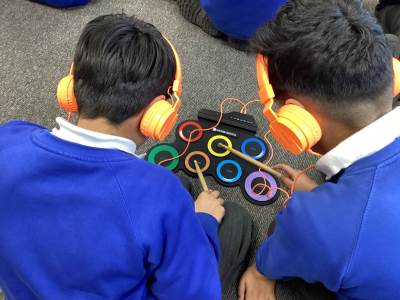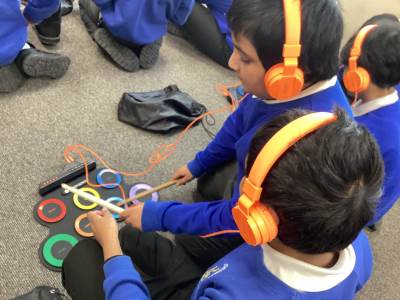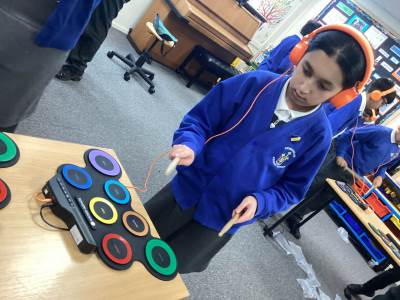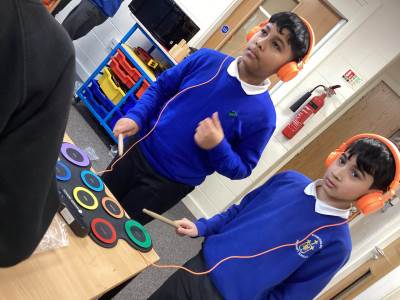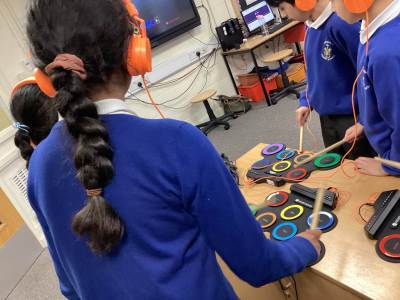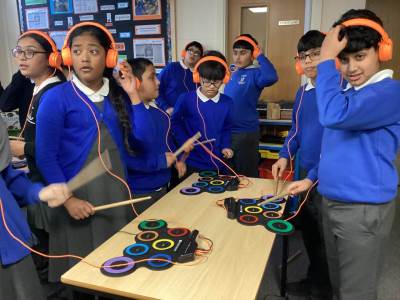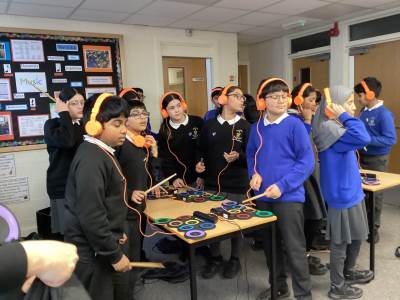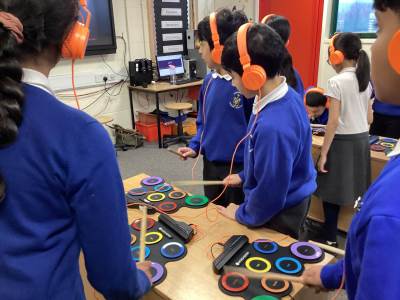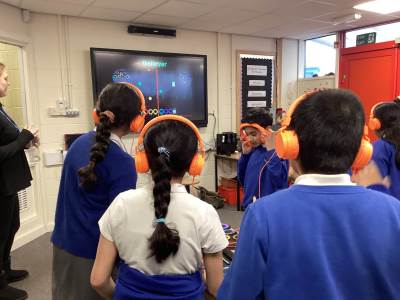Music
Music at Stoneyholme Primary school is for every child to enjoy the creative experience of making music, so that they gain a love of music as well as the practical skills needed to play, compose and appreciate music: skills which they will carry with them throughout their school lives and beyond
I am a Stoneyholme Musician because..
- I enjoy a variety of genres of music and can identify the different styles
- I feel confident to explore and play musical instruments including body percussion
- I can find and keep a steady beat
- I can listen and copy rhythmic patterns
- I can take part in a performance in front of an audience
- I can express myself through music
- I know more about music because I’ve learned more
Concepts and Progression
The key disciplinary concepts for Music are influence, expression, appreciation, interpretation, reflection and tradition.
The children also consider our whole school concept questions throughout learning in Music.
What does it mean to be a citizen?
Does equality always mean treating everybody the same?
Is power always a positive thing?
Does change always make things better?
Is being part of a community the same for everyone?
The overview taught throughout school -Junior Jam
music progressionmap 08009d97 2.pdf
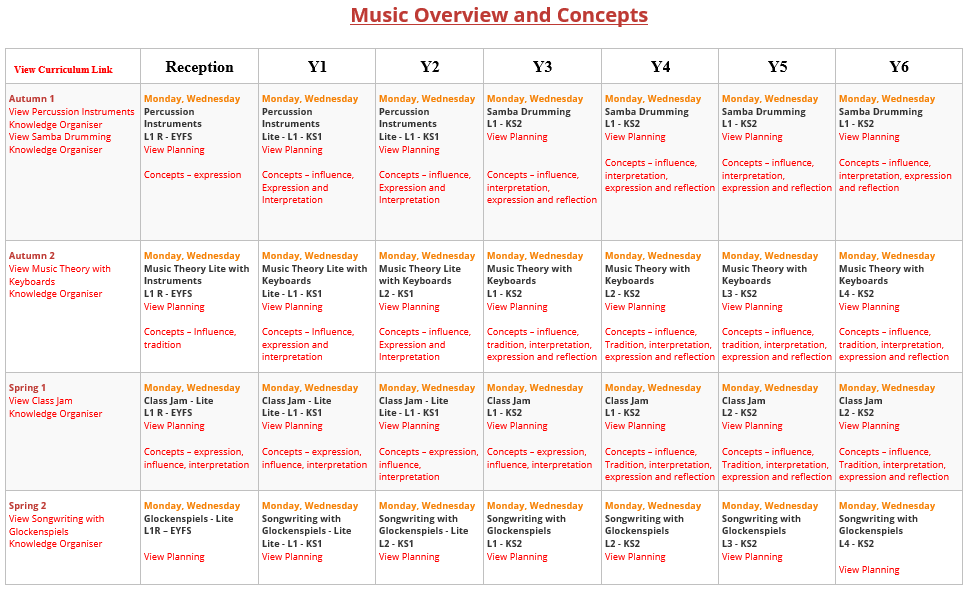
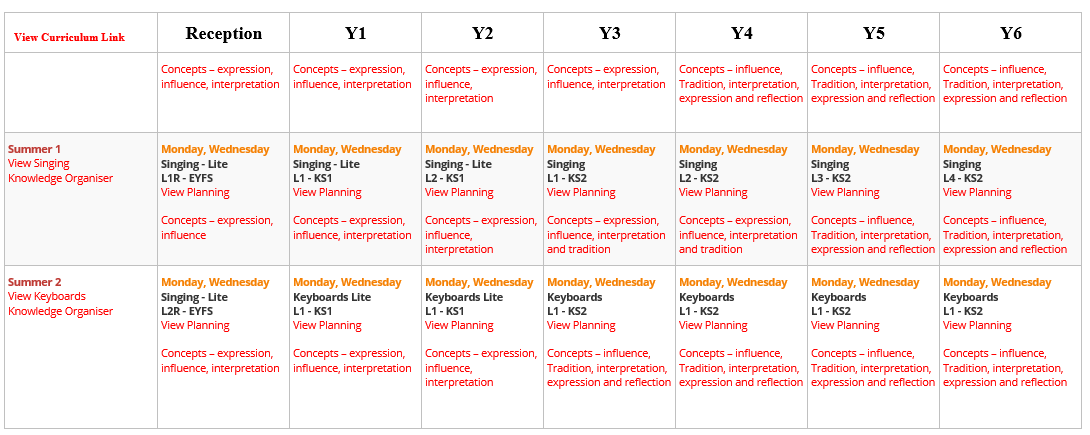
Road Map
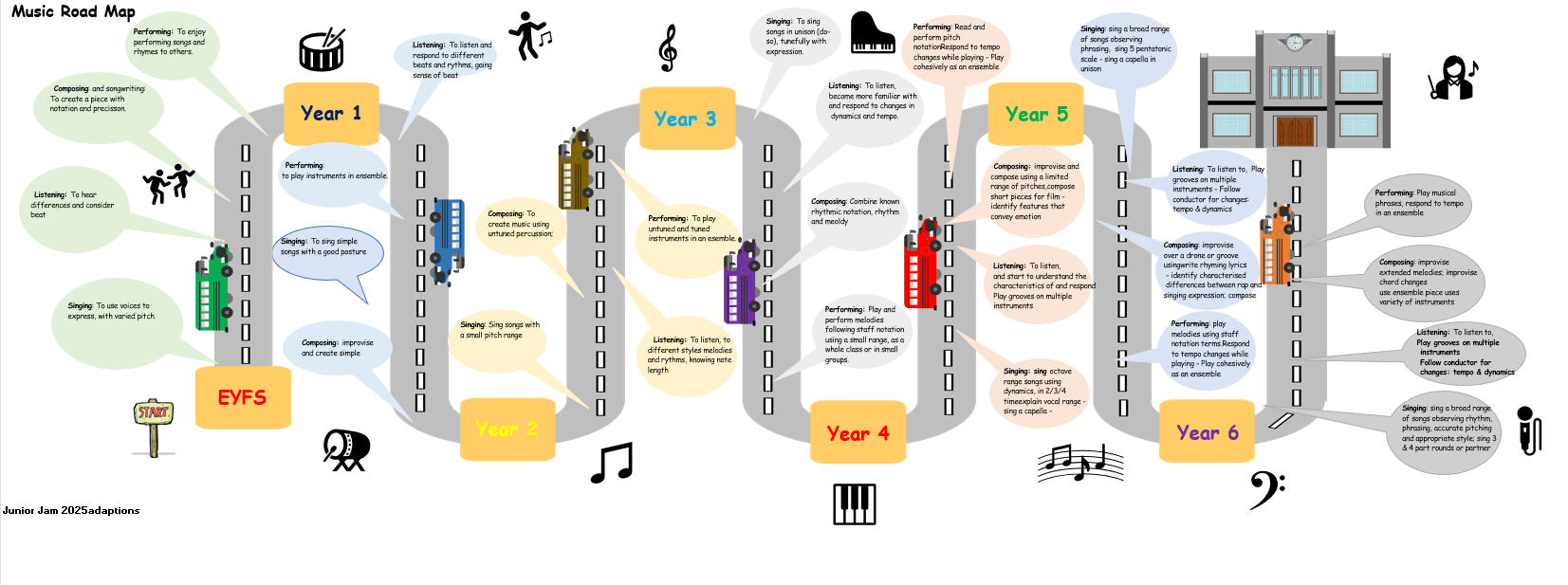
Curriculum Overview
music curriculum links overviews and music guidance eyfs ks1 and ks2 v5 1 .pdf
Policy
The Arts
Vision
Stoneyholme Community Primary school’s vision for the arts is to inspire our pupils to be expressive, to be creative and imaginative. Stimulating and developing the potential of every child across the Arts. Our pupils will be confident and proud of their creative achievements
Intent
The Arts curriculum consists of four key areas: Music, Art, Drama and Dance.
The Arts are taught across EYFS, KS1and KS2, covering a full range of skills. EYFS arts curriculum is from the Statutory Educational Programme.
Where appropriate, the Arts are planned and integrated alongside many areas of the curriculum. Every child at Stoneyholme has the opportunity to enjoy, participate and ultimately learn from the Arts. We aim to provide a wide range of high-quality arts experiences for all abilities and backgrounds, and promote understanding of the Arts from a wide range of cultures, including their own. The Arts address different learning styles, help pupils to increase confidence and raise aspirations. They open up a world of expression, imagination and enjoyment, by learning more and remember more.
The Aims of teaching
- Ensuring all children experience a rich and broad Arts curriculum
- Provide a variety of arts experiences in addition to the 4 main areas via cross-curricular themed / topic / STEAM planning, music and media rooms, enrichment afternoons.
- To experience Arts in varied learning environments – LOTC Digital green screen /Radio room / Kiln Room / Outside classroom / Performance stage and music area
- Provide a skill based curriculum that allows pupils to participate, achieve and enjoy.
- Focus on offering wider arts experiences to All children through extra-curricular activities, Drama, Music, Movement, Digital Media and other art forms.
- Allow children to develop their creativity
- Provide wider access to web resources and digital media to enhance knowledge of Arts from history, other cultures and societies
- Work alongside arts professionals, and visit museums, galleries and theatres etc
- Provide appropriate resources.
- Give the pupils time and space to create and nurture their ideas.
- Encourage children to work independently and collaboratively, to share experiences and celebrate success.
- Provide out of school opportunities where children can showcase their developing talents.
- Understand and explore how Art, music, drama and dance are, produced and communicated, via creative elements, mediums and media.
- Encourage the development of partnerships with parents and community.
- Develop opportunities to work with the community on shared projects.
Implementation
Our Arts Curriculum is designed to develop artistic creativity and expressive understanding for our children, but also to revisit key arts concepts and skills which have been carefully sequenced and planned to deepen understanding and encourage application and mastery of them.
The Arts also enables our children to gain an historical perspective, by understanding the significant role The Arts play and its place in the world. Time lining it’s importance. Specific mediums and forms of artistic expression, communication have changed throughout human history, but for the most part, how the Arts fall into one of the seven classical forms.
We do this by:
- The teaching of the Arts is planned for in half-termly blocks across all key stages, Keystage 1 has music weekly
- Incorporating technology by using iPads, promoting research and enquiry skills including the use of technology and resources within the school setting
- Concept development maps across school
- Using visual representations such as paintings, videos, timelines, digital, photographs, research websites
- Broadening their understanding by asking pupils to consider what they see, hear, feel and make links through appreciation
- Encouraging children to appreciate artefacts, motifs, artists, Arts professionals, styles, movements
- Considering substantive concepts which are concerned with the skill subject matter of the Arts
- Provide materials at varying levels of complexity to cater for the ability range of the class
- Explicitly teaching subject specific/technical vocabulary
- Pre-teaching
- The use of ‘talk partners’ to encourage collaborative learning and discussion
- Experiencing a wide range of opportunities outside the classroom including trips, visitors and carefully planned activities within our vast school grounds
By following these steps, our Arts Curriculum is both an stimulating and engaging. Laying a strong foundation for further Artistic development and helping pupils develop an early appreciation for the Arts
Impact
Our Arts Curriculum is planned and organised to ensure progression. If children are keeping up with the curriculum, they are deemed to be EXS or GDS. We use the following methods to track their progress in the Arts:
- Key questioning on previous knowledge and current knowledge
- Through process of Thinking and dialogue – appreciation of other pupils work
- Pupil discussions within class about their learning, verbal assessment
- Pupil interviews about their learning with subject leader
- Assessment against National Curriculum, weekly linked to key questions on knowledge organisers and an overall judgement at the end of a unit of work, and overarching assessments.
- The Arts are monitored using triangulation of Knowledge Organisers, LT plans and by the collection of digital images website evidence, displays and book monitoring.
- Progress and achievements are reported to parents yearly based from data collected from assessments.
- The Arts Curriculum team set action plans yearly, linked to the SDP, these are evaluated and RAG rated according.
Pupil Voice Music
In music i can make new sounds
Abdullah Year 3
You can learn new instruments
Abeera Year 3
I like music lessons because it helps me be more confident
Umaimah Year 5
/i/S.oldfield/Pupil_leader/Comedy_Contemporaries.mov
/i/S.oldfield/Pupil_leader/Art_and_music.mov
/i/S.oldfield/Pupil_leader/My_Movie.mov
I like the creativity and freestyle you have when combining musical instruments.
Larien Year6
I love the opportunity to interact with the instruments, this helps me reach my potential. Music is my favourite subject. I thought it was only about playing instruments and singing but now I've noticed its a lot more, like different stories, artists and cultures
Ali Year 6
I like music because its calming, and makes you much more happier
Hajrah Year 5
Showcase
EYFS Music
Year 1 Music
Year 2 Music
Year 3 Music
Year 4 Music
Year 5 Music
Year 6 Music
/i/video/SOARTMUSIC/pupil_voice_videos/Safa_Maya_Haniya_Inabiya.mp4
/i/video/SOARTMUSIC/pupil_voice_videos/Maya_Haniya_Inabiya.mp4
/i/video/SOARTMUSIC/pupil_voice_videos/Fatima_Angur___Saba.mp4
Song of the week
/i/video/SOARTMUSIC/autumn_2/Week_1_-_Landslide.mp4
/i/video/SOARTMUSIC/autumn_2/Week_2_-_Lean_On_Me.mp4
/i/video/SOARTMUSIC/autumn_2/Week_3_-_Santa_Claus_Is_Coming_To_Town.mp4
/i/video/SOARTMUSIC/autumn_2/Week_4_-_Deck_the_Halls.mp4
/i/video/SOARTMUSIC/autumn_2/Week_5_-_Jingle_Bells.mp4
/i/video/SOARTMUSIC/autumn_2/Week_6_-_Twelve_Days_of_Christmas.mp4
/i/video/SOARTMUSIC/autumn_2/Week_7_-_We_Wish_You_a_Merry.mp4

